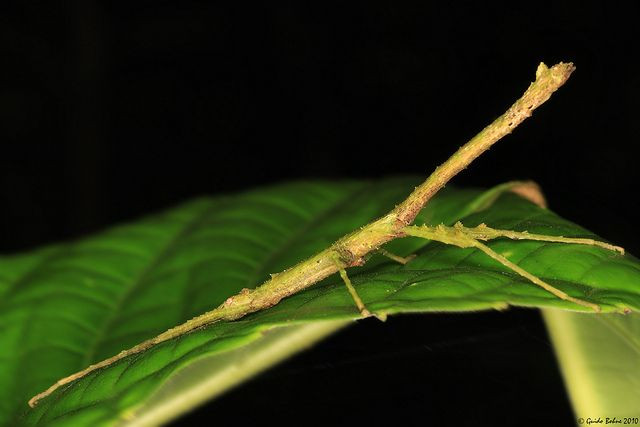Stick Insect May Hold Key To Antibiotic Resistance: Gut Microbe Resistant To Toxins, Infections It Couldn't Have Encountered Before, Researchers Say

A stick insect may hold the key to unraveling antibiotic resistance in bacteria. BBC reports that a microbe in the digestive system of the the Giant Lime Green stick insect may inspire researchers in their endeavor to develop new drugs against antibiotic resistant superbugs. In light of the recent statistical surge in such bacteria cultures, the discovery could be of crucial importance to national disease prevention strategies.
"We have discovered the microbe in the stick insect's gut is resistant to toxins and infections it could never have been exposed to,” said Tony Maxwell, head of biology at the John Innes Centre (JIC) in Norwich, England, where the insect is currently being studied. “This indicates that there is a general mechanism at work. If we can unravel that, then it opens the way to understanding antibiotic resistance and this will enable us to build a chemical strategy against it.”
The finding may also allow researchers to implement into drugs a mechanism that counters the resistance offered by superbugs.
That said, the Giant Lime Green stick insect is not the only candidate for humanity’s antibiotic savior. Several other organisms are currently being studied all around the world –– particularly soil bacteria, in which modern-day antibiotics originate. Another example is the tropical leafcutter ant, whose populations cultivate and protect a particular fungus food source. The evolutionary dependence has endowed the species with a wide spectrum of antibiotic agents used to repel parasites and microbes.
According to the UK’s deputy chief medical officer, Professor David Walker, the circumvention of antibiotic resistance in pathogens has become a global priority. Failure to address the situation may result in further mutations and more resilient agents. Eventually, it could render the global mainstay in disease prevention utterly useless.
“If we don't take action now, antibiotic resistance could mean that widely used treatments for diseases including cancer and common operations such as hip replacements could become impossible,” he explained. “If we don't take action now, we could face a situation when some common infections become untreatable.”
He added that although the situation has been recognized as a research priority by many regimes around the world, details on government initiatives and funding have yet to be formulated.



























